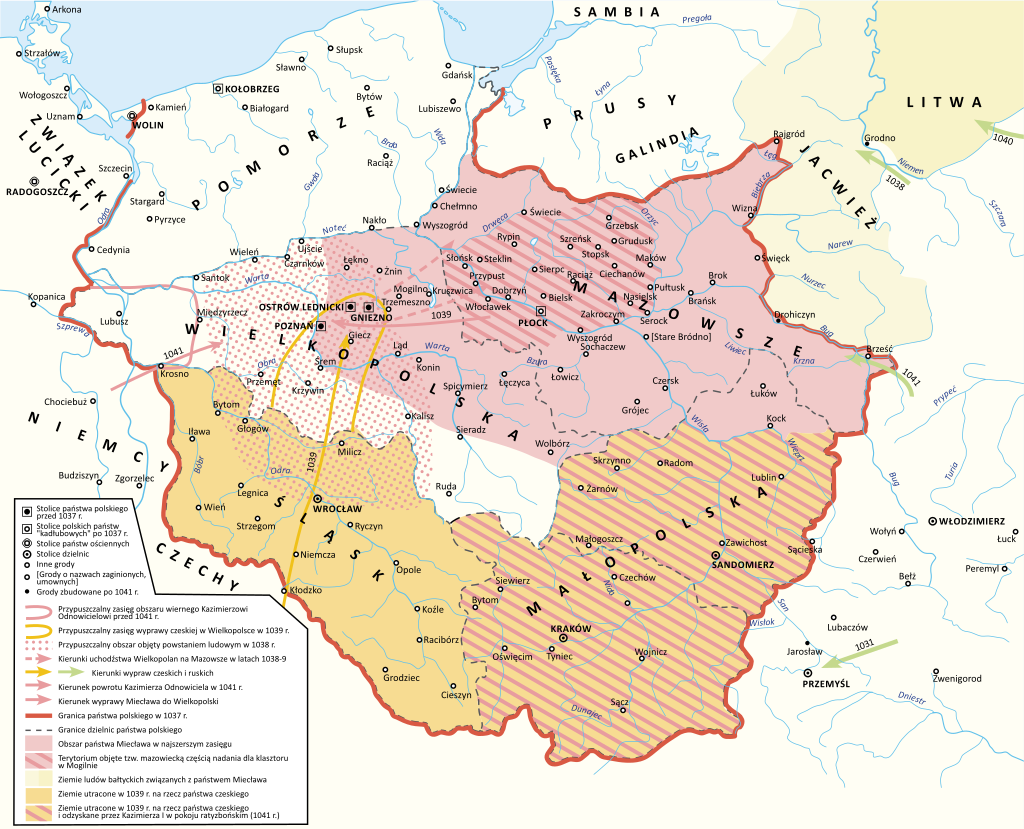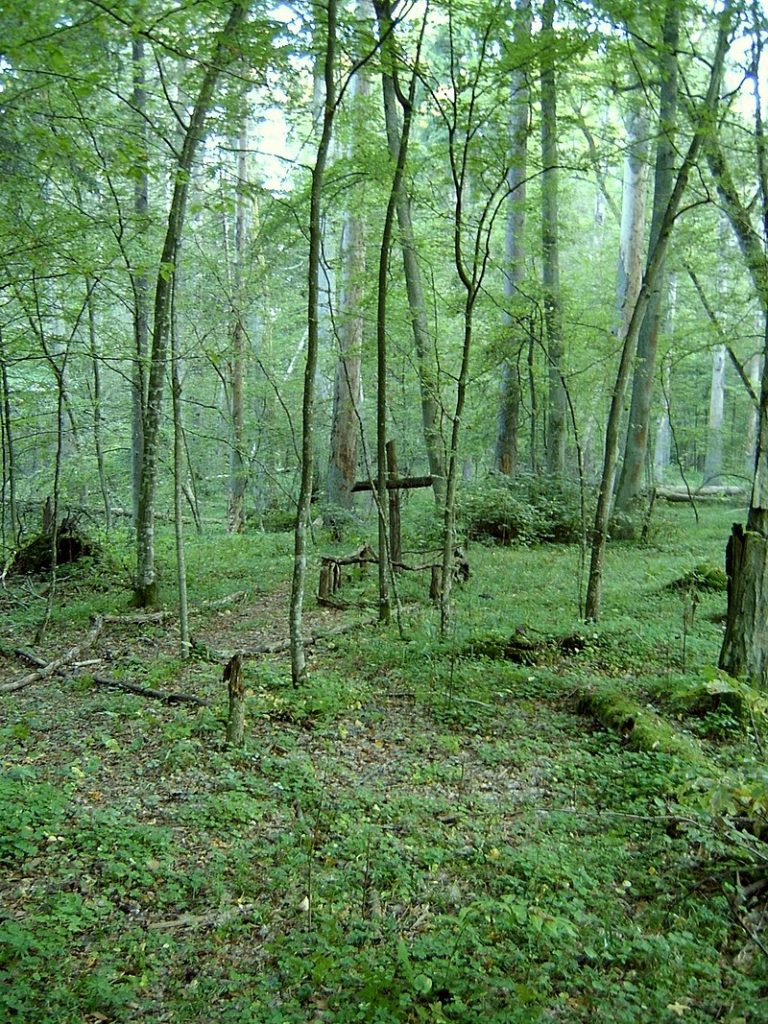Can a dead language be recovered if its speakers never wrote it down? Discoveries of isolated communities of speakers or hidden texts in lost languages are usually the stuff of fantasy, but occasionally such extraordinary discoveries do happen. One of the most unexpected discoveries in Baltic linguistics began one summer day in 1978, when a young Belarusian man with an amateur interest in collecting old books and relics of the past, Vyacheslav Zinov, stopped outside a run-down farm near Novy Dvor, deep in the Białowieża Forest near the Polish border. Zinov had made it known in the area that he was interested in buying old books, and an old man from the farm produced an ancient printed Latin prayer book which Zinov bought from him. When he got home, however, Zinov noticed something unusual. Sewn into the back of the printed book were several manuscript pages – a list of words in a language unknown to Zinov, entitled in Polish Poganske gwary z Narewu (“Pagan Dialects from Narew”). The ink of the manuscript was fading, so Zinov set to the task of copying the 215 words in the list. At the time, he had no idea of the importance of what he had found.
The Białowieża Forest, which straddles the border between Poland and Belarus, is one of the largest remaining areas of primeval forest in Europe. Home to herds of European bison, elk, wild boars and wild konik ponies, it is like a fragment of an older, primordial Europe. At one time this area, between the rivers Narew and Bug, was inhabited not by the Poles and Belarusians who live there today but by Balts known as Yotvingians or Sudovians, speaking a now-extinct Baltic language. The Yotvingians, like other Baltic peoples, proved particularly resistant to Christianisation; the religious practices of Sudovians living in Prussia were recorded in the 1550s by the Polish priest Jan Malecki, who described the sacrifice of a goat to the god Pergrubris. By the 1670s, however, Catholic missionaries had begun to reach the Yotvingians living in the Białowieża Forest area, although confusingly these people were often called “Old Lithuanians” (Stara Litwa) to distinguish them from the Orthodox or Greek Catholic Ruthenians. The “Old Lithuanians” worshipped pagan gods, but observed the same Julian Calendar as their Orthodox neighbours. By the 1720s the “Old Lithuanians” had mostly adopted Catholicism, but church authorities continued to complain that the “Yotvingians” clung to the old calendar. As late as 1860 a Russian imperial census found that 30,929 people living in Belarus identified themselves as Yotvingians and spoke Russian with a strong Lithuanian accent, as well as adhering to various old customs.

By the 18th century, Catholic missionaries in the Grand Duchy of Lithuania had come to understand that the language barrier was a major reason for the slow progress of Christianity in the region, and missionaries (who were often Polish-speakers) were encouraged to learn the local language so they could preach to the people. The only problem was that resources for learning Lithuanian, Samogitian and Yotvingian were few, or non-existent in the latter case. Here, as in the New World, missionaries were forced to become pioneering linguists as well as communicators of the Gospel. It seems likely that the anonymous author of “Pagan Dialects from Narew” was such a man, recording the dialects of Yotvingian spoken in the heavily forested Narew valley. Somehow, his prayer book came to be preserved by local people until Zinov accidentally came across it.
But then disaster struck. Vyacheslav Zinov was called up to serve in the Red Army, and in his absence his parents panicked about Zinov’s antiquarian interests. As news of the election of a Polish pope reverberated around the world, Zinov’s parents looked at the litter of old icons and prayer books collected by their son and decided it was too risky for such items to remain in the house. They worried that the antiques he collected might influence Vyacheslav to convert to Christianity, attracting the attention of the Soviet authorities and putting all their futures in jeopardy. So they ransacked their son’s collection and threw away anything of a religious nature – including the old Latin prayer book containing “Pagan Dialects from Narew”.
Luckily, they paid no attention to Zinov’s transcription. In 1983, on his return from military service, Zinov wrote to the Faculty of Philology at Vilnius University – presumably because he had recognised the similarity of the 215 words to Lithuanian. He explained his discovery and gave some examples of words from the glossary. The significance of the find was recognised by the great Baltic linguist Zigmas Zinkevičius (1925–2018) who soon obtained the complete transcription. Zinov had no linguistic training (and did not know Polish), and therefore his transcription was far from perfect. The possibility of a hoax had to be considered – the circumstances of Zinov’s discovery seemed so unlikely, after all, and the loss of the original manuscript rather too convenient. But Zinkevičius considered it impossible that someone with Zinov’s linguistic knowledge could have perpetrated such a sophisticated hoax (and it is hard to imagine why anyone would have done so for little or no fame or financial gain anyway). Indeed, subsequent developments in Baltic philology vindicated Zinkevičius’s judgement; Zinov’s list displayed features of Baltic languages not fully understood until after 1983, meaning forgery was impossible unless Zinov was a much more talented Baltic linguist than Zinkevičius himself.
“Pagan Dialects from Narew” gives the meaning of 215 Polish words in the unknown language that Zinkevičius identified as, in all probability, Yotvingian – or, perhaps, a form of Lithuanian heavily influenced by survivals from the Yotvingian language. The connection with Lithuanian was clear enough for Zinov to see: “tooth”, for example, is dontiš (Lith. dantis); “snake” (Lith. gyvatė) is giwatti; “day” (Lith. dienas) is dinš; “god” (Lith. dievas) is deuš; “to love” (Lith. mylėti) is miłdat; “stone” (Lith. akmuo) is akmi. But the language is also sufficiently different from Lithuanian for Zinkevičius to conclude it represented a distinct Baltic language, in all probability the remnants of Yotvingian.

A glossary of 215 words is not much to go on for reconstructing a language, but fortunately the language discovered by Zinov was not an isolate (a language unrelated to any other, like Basque). It was a Baltic language related to Lithuanian, Latvian and Old Prussian (the only extinct Baltic language whose lexicon is fairly well known). The 215 words recorded by Zinov provided a starting point for Zinkevičius and others to reconstruct the likely morphology of Yotvingian – in other words, it enabled them to predict how Yotvingian would form words typically found in other Baltic languages. We thus have some idea of what this “Narew language”, whether or not it was Yotvingian, would have been like. Zinkevičius found that Yotvingian had been influenced by German – which is not surprising, since the Yotvingians spent long periods under the rule of the Teutonic Knights. It is even possible that the people living on the River Narew were the returned descendants of thousands of Yotvingians forcibly removed to Sambia (in Prussia) by the Teutonic Knights in the Middle Ages.
One of the frustrating features of Zinov’s transcription is that he made no note of the prayer book’s date of publication, although he thought its place of publication had been Warsaw. From what we know of the mission to the Yotvingians from other sources, however, there was still paganism among them in the 1720s so the glossary was probably compiled at some point between 1670 (when records begin mentioning the “Old Lithuanians” in the region) and 1730. However, the place of publication is significant, and probably tells us that this mission to the Yotvingians took place under the authority of the Polish church rather than within the Diocese of Vilnius (which covered almost the entire Grand Duchy of Lithuania). No record of a Polish mission to the Yotvingians has yet come to light, but it represents a potentially fruitful avenue for future research.
Vyacheslav Zinov’s remarkable chance discovery resurrected a lost language – or at least a little of it; although just as remarkable, and completely unrecorded, is how an ancient missionary prayer book was treasured and preserved through the turbulent centuries leading up to that day in 1978. It seems almost impossible. And yet the forest spoke.

Francis Young is a historian of religion with a particular interest in pre-Christian Baltic religions. He is the editor of Pagans in the Early Modern Baltic (2022) and teaches at Oxford University’s Department for Continuing Education.
Header image (Białowieżki Park Narody) credit – Ralf Lotys [used under a CC BY-SA 3.0 Licence]
© Deep Baltic 2024. All rights reserved.
Like what Deep Baltic does? Please consider making a monthly donation – help support our writers and in-depth coverage of Estonia, Latvia and Lithuania. Find out more at our Patreon page.

